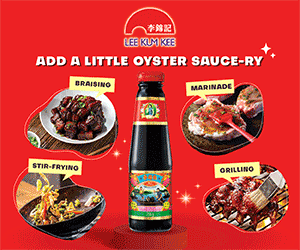Feature: Inspiring the next generation of hospitality

Pizzarova founder Jack Lander delves into actionable strategies to address hospitality's staff recruitment challenge head-on
One of the most pressing challenges facing the hospitality industry right now is the shortage of young talent. In fact, according to the latest State of Hospitality report published by Sommet Education, the sector will continue to lack up to 14 million people until 2027, owing largely to an ongoing skills crisis and a high turnover of existing skilled staff.
Hospitality has lost its allure
A negative industry reputation, amplified by the pandemic, is dissuading many young people from considering careers in hospitality, with the University of Greenwich reporting that just one in ten 14- to 21-year-olds would contemplate this path. Reasons for this range from perceived low pay and unsociable hours, to limited career awareness, a lack of core skills and assumed professional disrespect. And if dwindling ambitions based on these motives weren’t bad enough, tech company HRForecast has reported that 63% of current hospitality employees are stressed as a result of the current skills shortage – a poor advert for those thinking about their future careers.
Adding value to the employee experience
With UKHospitality reporting that a third of businesses in the sector are at risk of financial closure, resolving concerns with monetary rewards is often out of the question. As such, employers must foster and promote value beyond pay to attract new talent. Take the Thrive at Hilton wellbeing initiative, for example. Launched in 2017, the programme encompasses everything from regular flu clinics to wellness days and a self-guided wellness course, with subjects like yoga, mindfulness and meditation. Members with more than five years of service also get the option of a month-long sabbatical. Whilst not all smaller companies can follow suit on such an extensive scale, it's important to be offering as much as we can to attract young people who want to feel they’ll be safe, healthy and well respected in their place of work.
Professional development
With 67% of Gen Z workers currently prioritising companies that offer opportunities to acquire new skills, according to media giant Fortune, professional development opportunities are also extremely important.

Jack Lander, founder, Pizzarova
Hospitality leaders should therefore look at leveraging their strength through apprenticeship-style training, providing a direct, hands-on learning experience that leads to the accomplishment of a specific milestone or goal. Indeed, an international tech recruitment firm, VHR, has revealed that 64% of young people would complete an apprenticeship in place of expensive university training, provided that it led to a fulfilling career, so pointing out the advantages of learning from a lifelong professional, in addition to showcasing the diverse qualifications and career options hospitality has to offer, could make a real difference.
Transferrable skills
In addition to discussing long-term hospitality career paths, however, prospective employers should think about promoting the many transferable skills that can be acquired through the hospitality industry. For instance, working in high-pressure environments to unyielding standards makes employees better adept at meeting both quality expectations and deadlines in any industry – and by pointing this out, companies can begin to tackle negative reputations, presenting hospitality not as a dead-end but as one of many bright career paths available to those with catering experience, should young people choose to take it.
Early engagement
The importance of engaging young people in more positive perceptions early on can't be overstated. That’s why, in 2023, for example, industry giants Nestlé Professional, Compass, Sodexo, Elior and Punch Pubs ran nationwide 'Choose Hospitality' school visits, alongside UKHospitality chief executive, Kate Nicholls, and well-known hospitality charity, Springboard. Smaller hospitality businesses must follow suit if they are to reshape ambitions and ignite passion for hospitality careers before misconceptions take hold.
Bridging generational boundaries
To truly succeed in turning things around, however, leaders must learn to speak young people’s language, making the most of non-traditional communication channels like TikTok to spread the word. These platforms provide an unrivalled opportunity to visually showcase hospitality opportunities and skills, rebranding what was once seen as uninspiring – or potentially invisible – careers into thriving areas of passion and promise.
In addition to showcasing recipes and encouraging young people to become personally involved, these conversations must also touch upon the lesser-discussed benefits of hospitality careers, such as the potential opportunity for travel. Citing travel as the fourth most important reason for working, according to a survey run by FlexJobs, this is a benefit that will speak directly to Gen Z-ers who are likely to feel inspired by seeing other people exploring foreign cultures, all thanks to their chosen career path. In this instance, it's not so much a case of worrying about direct staff retention but increasing the appeal of the sector as a whole to create a wonderful, multi-skilled and mobile talent pool for the hospitality industry to enjoy.
Inspiring the future
When it comes to transforming the hospitality industry, engaging young minds early on is key. By reshaping outdated perceptions, offering apprenticeship-style training and creating a culture of wellbeing and social opportunity, it’s perfectly possible to transform the industry’s reputation. Together, we can redefine it as an innovative place to explore true career passions as young people develop on a personal, professional and potentially life-long basis.















